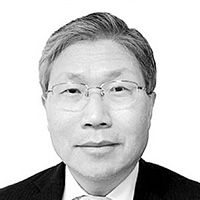Philippines and Korea moving closer to FTA

Undoubtedly, globalization has affected the way trade is conducted among and between nations. Free trade, which eliminates discrimination against imports and exports, is being adopted more and more by developed and developing nations in order to increase productivity and stimulate their economies.
The minimal presence or complete absence of government tariffs, quotas, subsidies, or prohibitions on goods and services is perceived to promote greater trade among nations. And when countries band together to form a regional cooperative, such as the ASEAN, they could all reap the benefits of free trade like faster growth rates and a greater number of markets for each member’s tradable goods and services.
As a result, there is now aggressive competition, especially among developing nations, to penetrate new markets. When several countries have the same or similar products, those which offer comparative advantage – skilled yet affordable labor, low or zero tariffs, dependable power supply, ease of doing business, to name a few – will, of course, have a competitive edge.
The Philippines, which has been enjoying an annual growth rate of between 6.1 to 6.5 percent, is at that point where it needs to embrace free trade now more than ever in order to sustain its phenomenal trajectory. Improved productivity is essential for the Philippines to compete with its neighbors, and this can be achieved through free trade agreements (FTAs) with independent states.
While the Philippines has an existing FTA with Korea through the ASEAN, I strongly believe that the time is ripe for them to have a separate and distinct FTA. It is an opportune moment, considering that this year marks the 70th anniversary of the establishment of Philippine-Korea diplomatic relations.
Korea is the 4th largest trading partner of the Philippines, with bilateral trade increasing by 9.3 percent in 2018 to $15.6 billion. This volume is expected to rise with increased production as a result of access to a greater variety of goods and services. And since free trade improves the allocation of resources, opens new markets, and presents business incentives and protections, economic development is virtually guaranteed.
As a fast-developing nation, the Philippines is in a perfect position to benefit from an FTA with Korea. Larger investments will open up job opportunities, especially in manufacturing, assembly, and the service industries. This inevitably raises the people’s standard of living and gives them greater purchasing power.
To this end, the Philippines and Korea agreed to pursue a bilateral FTA, with top-level officials from both countries led by Trade Minister Myung-hee Yoo and Trade Secretary Ramon M. Lopez attending the initial talks last April 17.
As the Korean Ambassador, one of my missions is to see to it that the economic partnership between our two countries will remain vibrant and dynamic. Entering into an FTA may just be the catalyst that will ignite an economic upsurge that will ensure a win-win scenario for both the Philippines and Korea.
For example, many Filipinos may not be aware that the Philippines supplies about 80 percent of the bananas consumed in Korea. When President Duterte visited Korea last year, he said that this number should increase. This will most likely happen under a regime of free trade.
In manufacturing, as well in the service industry that includes food, restaurants, hotels, and computer and internet services, a Philippine-Korea FTA will allow companies to invest more without the attendant risks and obstacles. As investments pour in, the number of Korean tourists – who already occupy the top spot among foreign visitors to the Philippines – will also certainly increase.
This, in turn, will translate to higher earnings and more consumer spending for Filipinos, while guaranteeing enough surplus income to invest in health and education, two aspects of life that have a tremendous impact on a nation’s future.
It is, therefore, my fervent hope that entering into an FTA will further enhance the economic relations between our two countries.
(Han Dong-man is the Ambassador of the Republic of Korea.)
- Latest
- Trending






























